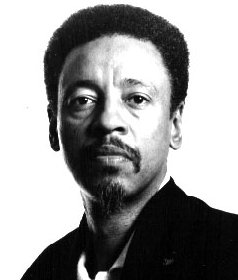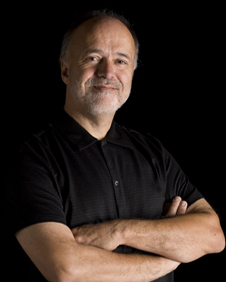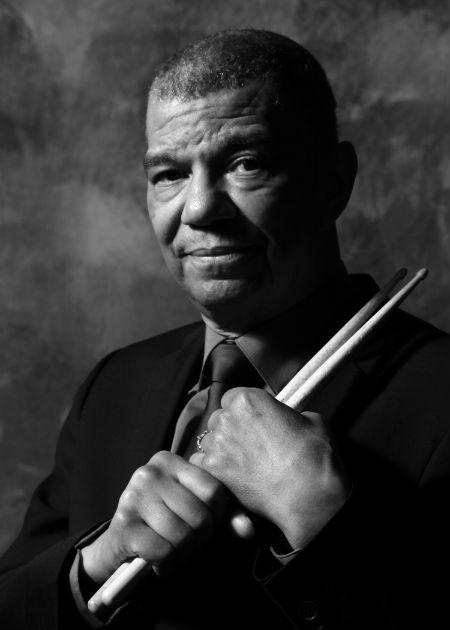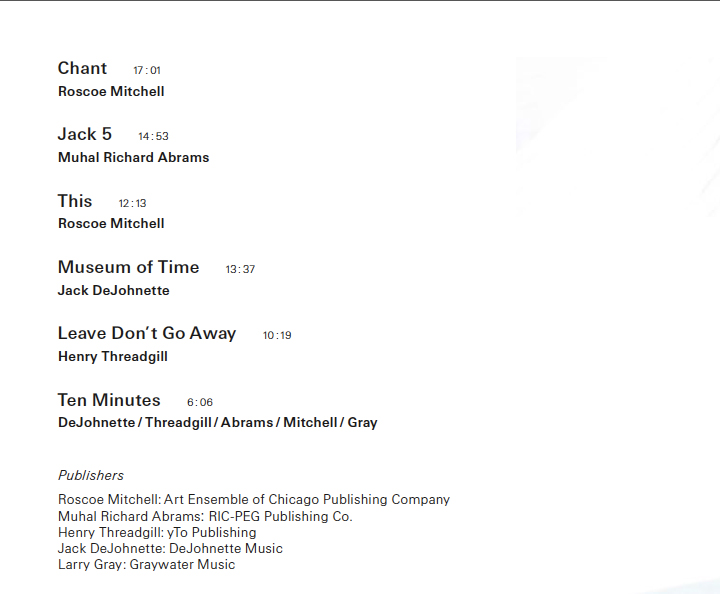Share This
Album at a Glance
Tags
Related Posts
Jack DeJohnette: Made in Chicago / Abrams, Gray, Mitchell, Threadgill
Posted by Larry Isacson on Mar 25, 2015 in Jazz | 0 comments
By 1960, the city of Chicago had experienced decades of transformation and social change. Waves of European immigrants from far shores, as well as migrants from within the nation’s borders, among them millions of African-Americans, coursed into this “City by the Lake,” its broad shoulders proving both welcoming and menacing in its embrace of this new populace. Music formed an identifiable and indelible part of that social change, so much so that by the 1920’s the city was home to the jazz avant-garde, an important precursor of what was to follow some two generations later.
According to A Power Stronger Than Itself, the magisterial, must-read tome by George E. Lewis, Chicago’s “Association for the Advancement of Creative Musicians,” or AACM, was officially chartered on August 5th, 1965; its first official concert, hosting a quintet led by saxophonist Joseph Jarman, followed less than two weeks later. Forty-eight years hence, on August 29th, 2013, a five-man band – AACM founder Muhal Richard Abrams; early, influential members Roscoe Mitchell and Henry Threadgill; bassist Larry Gray; and emcee and organizer of this Special “Legends” Edition grouping, Jack DeJohnette – all having deep, intimate ties to Chicago, the AACM, its members, and most of all each other, torched the stage at Chicago’s Millennium Park as part of that year’s 35th Chicago Jazz Festival. And now, in the Association’s fiftieth year, listeners can revel in this momentous concert’s scorching, epiphany-inducing music via the ECM label’s Made in Chicago, a CD release timed to celebrate the organization’s golden anniversary.
Roscoe Mitchell’s insistent, ritualistic “Chant,” flowering into an extended, full-throated Threadgill-led statement before the full quintet’s abrupt finish, finds the musicians and audience immediately and loudly expressing their amazement and gratification. Mr. Abrams’ intricate “Jack 5” is subdued yet stirring, ending with a tumultuous bass feature by Mr. Gray.
Messrs. Threadgill and Mitchell take up their flutes, and Mr. Gray his cello, on Mitchell’s haunting, somewhat spectral “This.” DeJohnette’s steady, insistent “Museum of Time” bookends a swelling, emotive middle with contemplative and mysteriously-fashioned music, Mr. Abrams’ piano providing the track’s emotional guidance and structure. Mr. Abrams’ fierce, bracing solo is the highlight of Threadgill’s “Leave Don’t Go Away.” “Ten Minutes,” following final words from the drummer extraordinaire, sends the crowd out ecstatically.
Experimentalism, exploration, individuality, reciprocity, radicalism, synchronous communication and collaborative unity, all on passionate, fiery display, will fill listeners with equally jubilant feelings.
With Made In Chicago, an exhilarating live album, Jack DeJohnette celebrates a reunion with old friends. In 1962, DeJohnette, Roscoe Mitchell and Henry Threadgill were all classmates at Wilson Junior College on Chicago’s Southside, pooling energies and enthusiasms in jam sessions. Shortly thereafter Jack joined Muhal Richard Abrams’ Experimental Band, and Roscoe and Henry soon followed him. When Abrams cofounded the Association for the Advancement of Creative Musicians in 1965, DeJohnette, Mitchell and Threadgill were all deeply involved, presenting concerts and contributing to each other’s work under the AACM umbrella.
Jack brought this group together again for a very special concert at Chicago’s Millennium Park in August 2013, completing the group with the addition of bassist/cellist Larry Gray. The concert recording – featuring compositions by Roscoe, Henry, Muhal and Jack, plus group improvising - was mixed by Manfred Eicher and Jack DeJohnette at New York’s Avatar Studio. Made In Chicago is issued as the AACM begins its 50th anniversary year.
Source: ECM Records
 Henry Threadgill |
HENRY THREADGILL: alto sax, b. flute & composition Henry Threadgill (born February 15, 1944, in Chicago, Illinois) is an American composer, saxophonist and flautist, who came to prominence in the 1970s leading ensembles with unusual instrumentation and often incorporating a range of non-jazz genres. He studied at the American Conservatory of Music in Chicago co-majoring in piano and flute, along with composition. He studied piano with Gail Quillman and composition with Stella Roberts. He has led a distinguished career in music for over forty years, as both a leader and as a composer. Threadgill’s music has been performed by many of his long-lasting instrumental ensembles, including the trio Air with Fred Hopkins and Steve McCall, the seven-piece Sextet, Very Very Circus, the twenty-piece Society Situation Dance Band, X-75, Make a Move, Aggregation Orb, and his current group Zooid. He has recorded many critically acclaimed albums as a leader of these ensembles with various record labels, including Arista/Novus, About Time, Axiom, Black Saint, Columbia and Pi Recordings. Threadgill has had numerous commissions and awards throughout his career. He has composed music for theatre, orchestra, solo instruments, and chamber ensembles. His works for large orchestras, such as “Run Silent, Run Deep, Run Loud, Run High” (conducted by Hale Smith) and “Mix for Orchestra” (conducted by Dennis Russell Davies), were both premiered at the Brooklyn Academy of Music in 1987 and 1993 respectively. He has had commissions from Mordine & Company in 1971 and 1989, from Carnegie Hall for “Quintet for Strings and Woodwinds” in 1983 and 1985, the New York Shakespeare Festival in 1985, Bang on a Can All-Stars in 1995, “Peroxide” commissioned by the Miller Theatre Columbia University in 2003 for “Aggregation Orb,” a commission from the Talujon Percussion Ensemble in 2008, a piece “Fly Fliegen Volar” commissioned and premiered at the Saalfelden Jazz Festival with the Junge Philharmonie Salzburg Orchestra in 2007, a premier of the piece “Mc Guffins” with Zooid at the Biennale Festival in Italy in 2004 to name some. Source: Wikipedia |
|
Roscoe Mitchell |
ROSCOE MITCHELL: saxophones & composition Roscoe Mitchell (born August 3, 1940 in Chicago, Illinois) is an American composer, jazz instrumentalist and educator, mostly known for being “a technically superb – if idiosyncratic – saxophonist.” The Penguin Guide to Jazz described him as “one of the key figures” in avant-garde jazz; All About Jazz states that he has been “at the forefront of modern music” for the past 35 years. The New York Times has mentioned that he “qualifies as an iconoclast.” Mitchell grew up in the Chicago, Illinois area where he played saxophone and clarinet at around age twelve. His family was always involved in music with many different styles playing in the house when he was a child as well as having a secular music background. His brother, Norman, in particular was the one who introduced Mitchell to jazz. In 1965, Mitchell was one of the first members of the non-profit organization Association for the Advancement of Creative Musicians (AACM) along with Jodie Christian (piano), Steve McCall (drums), and Phil Cohran (composer). The following year Mitchell, Lester Bowie (trumpet), Kalaparusha Maurice McIntyre (tenor saxophone), Favors, Lester Lashley (trombone), and Alvin Fielder (drums), recorded their first studio album, Sound. The album was “a departure from the more extroverted work of the New York-based free jazz players” due in part to the band recording with “unorthodox devices” such as toys and bicycle horns. Throughout his career, Mitchell has made a point of working with younger musicians in various ensembles and combinations, many of whom were not yet born when the first Art Ensemble recordings were made. Mainly from Chicago, these players include trumpeter Corey Wilkes, bassist Karl E. H. Seigfried, and drummer Isaiah Spencer. In 2007, Mitchell was named Darius Milhaud Chair of Composition at Mills College in Oakland, California, where he currently lives. Mitchell was chosen by Jeff Mangum of Neutral Milk Hotel to perform at the All Tomorrow’s Parties festival in March 2012 in Minehead, England. Source: Wikipedia |
|
Muhal Richard Abrams |
MUHAL RICHARD ABRAMS: piano & composition Muhal Richard Abrams (born September 19, 1930, in Chicago, Illinois) is an American educator, administrator, composer, arranger, clarinetist, cellist, and jazz pianist in the free jazz medium. Abrams’ first gigs were playing the blues, R&B, and hard bop circuit in Chicago and working as a sideman with everyone from Dexter Gordon and Max Roach to Ruth Brown and Woody Shaw. In 1950 he began writing arrangements for the King Fleming Band, and in 1955 played in the hard-bop band Modern Jazz Two + Three, with tenor saxophonist Eddie Harris. After this group folded he kept a low profile until he organized the Experimental Band in 1962, a contrast to his earlier hard bop venture in its use of free jazz concepts. Abrams moved to New York permanently in 1975 where he was involved in the local Loft Jazz scene. In 1983, he established the New York chapter of the Association for the Advancement of Creative Musicians. In the 1970s, Abrams composed for symphony orchestras, string quartets, solo piano, voice, and big bands in addition to making a series of larger ensemble recordings that included harp and accordion. He has recorded and toured the United States, Canada and Europe with his orchestra, sextet, quartet, duo and as a solo pianist. His list of musical affiliations is a veritable “who’s who” of the jazz world, including Roach, Gordon, Eddie “Lockjaw” Davis, Art Farmer, Sonny Stitt, Braxton, The Art Ensemble of Chicago, Harris and many others. In 1990 Abrams won the Jazzpar Prize, an annual Danish prize within jazz. Abrams received a 1997 Foundation for Contemporary Arts Grants to Artists Award. In May 2009 the National Endowment for the Arts announced that Abrams would be one of the recipients of the 2010 NEA Jazz Masters Award. In June 2010, Abrams was given the Lifetime Achievement Award by New York City’s premier jazz festival, known as the Vision Festival. Source: Wikipedia |
 Larry Gray |
LARRY GRAY: double bass Larry Gray is a Chicago musician known for his compositions and skill on the double bass and cello. His primary teachers were Joseph Guastafeste, longtime principal bassist of the Chicago Symphony Orchestra, and cellist Karl Fruh, a highly regarded soloist and teacher. Gray demonstrates an impressive versatility and an uncommon musical curiosity. Originally a jazz guitarist, Gray switched to the double bass and quickly developed a reputation as a first-call sideman. Within a short time, he began to work at Chicago’s premier jazz club, the Jazz Showcase, where he appeared with increasing frequency, often with drummer Wilbur Campbell and pianist Willie Pickens. Throughout the years he has worked with such jazz greats as George Coleman, Lee Konitz, Bobby Hutcherson, McCoy Tyner, Sonny Fortune, Ira Sullivan, Junior Mance, David “Fathead” Newman, Charles McPherson, Branford Marsalis, Benny Golson, Jackie McLean, Sonny Stitt, Eddie “Lockjaw” Davis, Al Cohn,Eddie Harris and Les McCann. In addition, he has collaborated with guitarists Kenny Burrell, Joe Pass, and Tal Farlow, as well as the drummers Ed Thigpen and Jack DeJohnette, and trumpeters Donald Byrd and Harry “Sweets” Edison, among others. Gray has studied classical music extensively. His principal teachers were Joseph Guastafeste, longtime principal bassist of the Chicago Symphony Orchestra and cellist Karl Fruh, a highly regarded soloist and teacher. Under Mr. Fruh’s guidance, he received Bachelors and Masters degrees in Cello Performance from Chicago Musical College of Roosevelt University. Source: Wikipedia |
 Jack DeJohnette |
JACK DEJOHNETTE: drums & composition Jack DeJohnette (born August 9, 1942) is an American jazz drummer, pianist, and composer. An important figure of the fusion era of jazz, DeJohnette is one of the most influential jazz drummers of the 20th century, given his extensive work as leader and sideman for musicians including Freddie Hubbard, Keith Jarrett, John Abercrombie, Sonny Rollins, Miles Davis, Joe Henderson, and John Scofield. DeJohnette’s style incorporates elements of jazz, free jazz, world music, and R&B, contributing to him being one of the most highly regarded and in-demand drummers. His drumming style has been called unique; one critic writes that he is not merely a drummer but a “percussionist, colourist and epigrammatic commentator mediating the shifting ensemble densities” and that “his drumming is always part of the music’s internal construction.” Modern Drummer magazine, in a 2004 interview, called DeJohnette’s drumming “beyond technique.” DeJohnette calls himself an “abstract thinker” when it comes to soloing, saying that he puts “more weight on the abstract than, ‘What were you thinking in bar 33?’ I don’t like to think that way. I can do it, but I like to be more in the flow.” In terms of what he feels when he plays, DeJohnette said that when he plays, he goes “into an altered state, a different headspace. I plug into my higher self, into the cosmic library of ideas.” Source: Wikipedia |
![]() About Larry Isacson
About Larry Isacson
| Thinking about purchasing this album?
Follow this link for more album details or to make the purchase. Buy it now |
“Not just recommended. Guaranteed.”
We stand behind every album featured on Expedition Audio. Our objective is to take the monetary risk out of music exploration. If you order this album from HBDirect.com and do not like it you can return it for a refund.
Jack DeJohnette Trio feat. Ravi Coltrane & Matt Garrison - Wise One - Live @ Blue Note Milano






